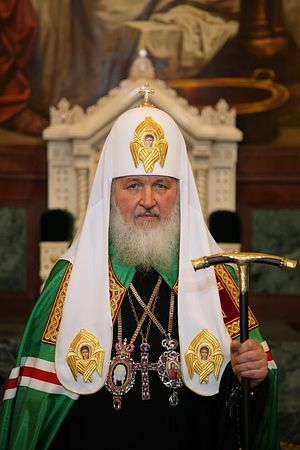Moscow, March 5, 2013

|
The head of the Russian Orthodox Church believes that in
the 17th century, invaders were able to take power in
Moscow with ease, as representatives of the Moscow elite
“considered the occupation of Russia to be a good
thing, as a way of raising the standard of material life
and the cultural standard, and to partake of European
values.”
Patriarch Kyrill also noted the importance of the figure of Patriarch Hermogenes as an authority for ordinary people who did not agree with the elites: “And why did the enemies demand help from the Patriarch? This was because they realized that the people—the same common people who decide and have always decided Russia's fate, did not agree with the elites, it did not accept temptations, it lived its own inner life and only one voice could influence it—the voice of the Patriarch... But he (Hermogenes) lived one life with his people, and that powerful elite class which tried to destroy the unity of the country was, in reality, alien to both the Church and the people.”
Patriarch Hermogenes was shut up in the Monastery of the
Miracle of the Archangel Michael because he refused
“to betray his motherland”, and there he died
of hunger. But even imprisoned, Hermogenes continued to
call on the Russian people, blessing it for a war of
liberation from the invaders, and his calls reached Minin
and Pozharsky, who led the people's volunteer corps and
went down in history.
Patriarch Kyrill called the 17th century Time of Troubles
“a lesson to everybody”: “What happened
to us in the 17th century is a great lesson for all times
and a lesson for all of us—for the authorities, for
the elites, for the Church and for the
people.”
